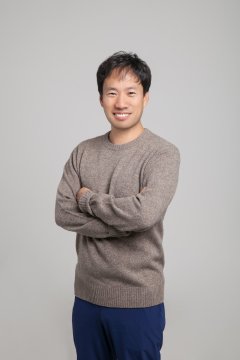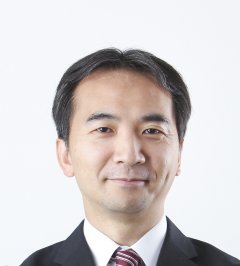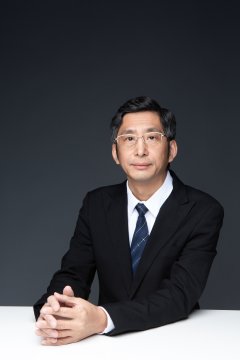KeynotesAPSEC 2023
Translating SE Skills to AI Company Leadership
Abstract: From a decade in software engineering research to leading Naver’s AI team and founding an AI company, my journey exemplifies the adaptability and value of software engineering skills in the AI landscape. This narrative explores the transition, emphasizing how foundational software engineering methodologies have become instrumental in navigating the complexities of AI innovation and leadership.

Prof. Dr. Sung Kim initiated his professional journey in 1996 by developing a search engine, KachiNe, using a web crawler, and co-founded Naravision Inc., where he developed an email service named KebiMail. His later academic tenure as a professor at the Hong Kong University of Science and Technology was marked with significant achievements, such as winning the Most Influential Paper award at ICSME for a decade. He also garnered the prestigious SIGSOFT Distinguished Paper Award four times from premier software engineering conferences, such as ICSE and FSE.
In 2017, Kim joined Naver and set up the NAVER Clova AI team, leading groups focused on vision/OCR, speech recognition, speech synthesis, and NLP. He successfully incorporated AI services into more than 30 areas within Naver. His continuous passion for AI popularization and transformation led him to establish a startup called Upstage.
Upstage, working towards the vision of “Making AI Beneficial,” aims to enhance the world with AI technology. As part of its efforts, Upstage identifies areas within businesses where innovation is possible through AI technology. It offers solutions, including consulting and an AI Pack, which enables document automation and Chat AI through DocAI and LLM. These services include the development of basic AI models and systems necessary for implementation
SWEBOK Guide Evolution and Its Emerging Areas including Machine Learning Patterns
Abstract: The Guide to the Software Engineering Body of Knowledge (SWEBOK) spells out components of the software engineering discipline, promoting a consistent view of SE worldwide. Hironori has led its evolution project to release its newest version 4, which mainly reflects new developments in SE practice (such as Agile and DevOps) and the growth of BOK, resulting in new knowledge areas (including software architecture, security, and operations) as well as connections to related areas such as AI. This talk firstly overviews the SWEBOK guide and its latest updates, including new knowledge areas and emerging topic areas, including AI SE. Furthermore, as a part of AI SE, the talk explains how recommended SE practices for machine learning systems have been formalized as ML SE and design patterns and how those patterns can be utilized for the development and maintenance of ML systems, such as ML patterns detection in ML code.

Prof. Dr. Hironori Washizaki is a Professor and the Associate Dean of the Research Promotion Division at Waseda University in Tokyo and a Visiting Professor at the National Institute of Informatics. He also works as Outside Directors of SYSTEM INFORMATION and eXmotion. He currently serves as IEEE Computer Society 1st Vice President and has been elected IEEE Computer Society 2025 President. He has led software engineering research and ICT professional and educational activities, including developing the IEEE-CS’s Guide to the Software Engineering Body of Knowledge (SWEBOK Guide). He has contributed to the software engineering and ICT community, particularly APSEC, serving as APSEC 2018 Program Chair, APSEC 2022 General Chair, and APSEC Steering Committee Member. He has also served as ISO/IEC/JTC1/SC7/WG20 Convenor, IPSJ/SIGSE Chair, CSEE&T Steering Committee Member, IEEE Trans. Emerging Topics in Computing Associate Editor, and COMPSAC Advisory Committee Member. He has led many academia-industry joint research and large-funded projects in software design, reuse, traceability, quality assurance, and machine learning engineering. Recent achievements include IoT Design Patterns and Machine Learning Design Patterns. He leads a professional IoT/AI/DX education project called SmartSE.
Intelligent Software Engineering – Progress and Challenges
Abstract: Software is eating the world. However, the current software development process is still largely a manual, time-consuming, and error-prone process. In the era of big data and artificial intelligence, we aim to achieve intelligent software engineering, which builds intelligent models from software data (such as source code, execution logs, historical failures, performance counters, etc) to automate programming, testing, and maintenance tasks. Examples of these tasks include code summarization, code search, and log analytics, through which software development productivity can be improved and maintenance effort can be reduced. In recent years, various deep learning models, including large language models (LLMs), are utilized for intelligent software engineering. In this talk, I will introduce some recent work on intelligent software engineering, especially the LLM-based approaches. I will also briefly discuss several challenges in this promising field.

Prof. Dr. Hongyu Zhang is a professor at School of Big Data and Software Engineering, Chongqing University, China. He also worked at the University of Newcastle, Microsoft Research Asia, and Tsinghua University. He received his PhD degree from National University of Singapore in 2003. His research is in the area of Software Engineering, in particular, intelligent software engineering, software analytics, and software maintenance. The main theme of his research is to improve software quality and developer productivity by mining software data. He has published more than 200 research papers in reputable international journals and conferences. With an H-index of 55, his research has been cited over 12,400 times (Google Scholar). He received eight Distinguished Paper awards and Best Paper awards. He was general co-chair of ICSME 2020 and program committee co-chair of APSEC 2018. He is also an Associate Editor of ACM Computing Surveys, Journal of Systems and Software, and Automated Software Engineering. According to two Elsevier Bibliometric Assessments of Software Engineering Scholars and Institutions (2010-2017, 2013-2020), he is among the top 20 most prolific researchers in software engineering. He is a Distinguished Member of ACM, a Senior Member of IEEE, and a Fellow of Engineers Australia (FIEAust).
Tue 5 DecDisplayed time zone: Seoul change
09:30 - 10:30 | KeynoteKeynotes at Grand Hall 1 Chair(s): In-Young Ko Korea Advanced Institute of Science and Technology | ||
09:30 60mKeynote | Translating SE Skills to AI Company Leadership Keynotes Sunghun Kim Hong Kong University of Science and Technology | ||
10:30 - 11:00 | |||
10:30 30mCoffee break | Coffee Break Catering | ||
Wed 6 DecDisplayed time zone: Seoul change
09:30 - 10:30 | |||
09:30 60mKeynote | SWEBOK Guide Evolution and Its Emerging Areas including Machine Learning Patterns Keynotes Hironori Washizaki Waseda University | ||
10:30 - 11:00 | |||
10:30 30mCoffee break | Coffee Break Catering | ||
Thu 7 DecDisplayed time zone: Seoul change
09:30 - 10:30 | |||
09:30 60mKeynote | Intelligent Software Engineering – Progress and Challenges Keynotes Hongyu Zhang Chongqing University | ||
10:30 - 11:00 | |||
10:30 30mCoffee break | Coffee Break Catering | ||